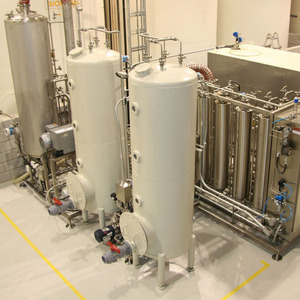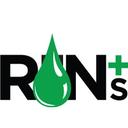Methes to devote part of biodiesel capacity to other bioproducts

Photo: Methes Energies International Ltd.
May 20, 2015
BY Methes Energies International Ltd.
Methes Energies International Ltd. announced May 19 that it will start offering epoxidized soybean oil (ESO) and natural polyol from its Sombra, Ontario, biodiesel facility. Both of these biobased products help address growing global demand for the replacement of nonsustainable products, such as fossil fuel chemicals, across a wide range of industries. ESO can be used, among other things, in the production of polyvinyl chloride (PVC) plastics and natural polyol in the production of paints, coatings, castings as well as insulating foams. The demand for both products has been increasing steadily in recent years and now accounts for a combined market value in excess of $1 billion in North America.
Because of its unique design and flexibility, the company’s biodiesel processors (the Denami 3000) can easily be retooled and adjusted for the production of ESO and natural polyol with minimal capital expenditures. The company will initially convert about 20 percent of its 13 MMgy biodiesel capacity for the production of ESO and natural polyol. The company targets the third quarter of this year to start production and sales. If and when the biodiesel market improves to provide better margins than ESO and natural polyol, the company can restart the production of biodiesel within approximately two weeks.
Advertisement
Methes Energies is also pleased to announce that it has retained Omni Tech International Ltd. to lead the market development for both products. Omni Tech has a solid track record of success and considered one of the leading consulting firms in the emerging area of renewable resource development and the commercialization of biobased products. While Methes will continue to focus on innovative technologies and production of renewable products, Omni Tech will work at identifying customers and new markets for the company.
While management believes that the biodiesel industry will eventually get back on track, the lack of clarity from the EPA regarding the renewable volume obligations for 2014, 2015 and 2016 as well as the blender’s tax credit for 2015 have continue to negatively impact the biodiesel industry. In light of the current situation, management has been working, over the past several months, on alternative ways to maximize the use of the company’s assets in Sombra, Ontario, and to increase shareholders’ value.
Advertisement
“It is clear that selling biodiesel for less than our cost does not make much sense,” said Nicholas Ng, president of Methes. “We found two products that are compatible with our renewable core business and a great fit to our current technology, location and on-site resources. We see a bright future with ESO and natural polyol as well as much better margins. We are also very excited to be working with Omni Tech—they’ve been at this for almost three decades, they know the biobased chemicals space very well and understand where the market is and where it is going. Also, to have the ability to produce other biobased products using our existing assets is a big advantage. Biodiesel sells for about $3 a gallon right now with no margins and some natural polyols are selling between $5 and $17 per gallon with healthy margins.”
Lee E. Walko, biobased business development manager for Omni Tech, added, “Sustainability and reducing environmental impact are key drivers in many applications, including paints, coatings, adhesives and polyurethanes. Companies are focusing on the use of renewable raw materials as a major way to address these goals. Epoxidized soybean oil is a key biobased chemical intermediate that is being utilized today in many novel ways to create biobased chemicals such as polyester polyols for polyurethane applications. Omni Tech is excited and pleased to be working with Methes Energies on these two opportunities. We are looking forward to helping Methes Energies expand their bio portfolio of products.”
Related Stories
Biodiesel capacity in the U.S. and Canada dipped slightly stable in 2024, with several renewable diesel producers reporting headwinds and lower margins alongside a drove of SAF projects in various stages of development.
The IEA’s Task 39 group has new research regarding the development and status of the sustainable aviation fuel industry.
The U.S. EPA on Nov. 16 released updated RIN data, reporting that nearly 2.11 billion RINs were generated under the RFS in October, up from 1.81 billion generated during the same month of last year.
Conestoga to host SAFFiRE cellulosic ethanol pilot plant
Conestoga Energy and SAFFiRE Renewables LLC announced on Nov. 16 their agreement for Conestoga to host SAFFiRE’s cellulosic ethanol pilot plant at Conestoga’s Arkalon Energy ethanol facility in Liberal, Kansas.
Officials at Calumet Specialty Products Partners L.P. discussed the company’s proposed plans to boost sustainable aviation fuel (SAF) production at its Montana Renewables biorefinery during third quarter earnings call, held Nov. 9.
Upcoming Events










